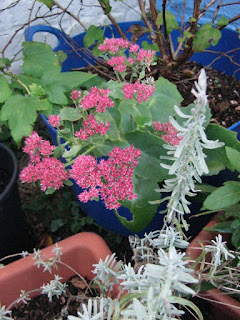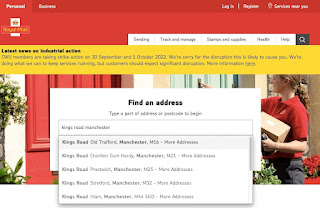'The Buddha in the Attic' by Julie Otsuka was linguistically interesting, being written in third person plural; we and us are the pronouns used by the narrator as if the whole group of women are sitting together telling the story of what happened to them. A group of young women are travelling from Japan to America as picture brides, marriages arranged at a distance for migrant workers who have settled in the US. It is not one story but many, many stories, many different experiences related alongside each other, so there are not 'characters' as such, sometimes the women, their husbands or children are named, but sometimes all we have is the litany of their lives. They travel together and discuss their expectations. They arrive and find these expectations are mostly disappointed, but they got on with life regardless. They work, they have children, time passes. The whole book was a delight because it read like a prose poem, and you felt connected to the whole community of women, even though you don't know them individually, you see this huge spectrum of experiences. I liked them because I admired their fortitude, their ability to make the best of what life gave them and strive to be happy. It was a hard life that they found when they arrived but they were equal to it. They count their blessings. This is just a small part of the 'Babies' chapter, which continues in this vein for several pages:
"We gave birth under oak trees, in summer, in 133 degree hear. We gave birth beside wood-stoves in one-room shacks on the coldest night of the year. We gave birth on windy islands in the Delta, six months after we arrived, and the babies were tiny, and translucent, and after three days they died. We gave birth nine months after we arrived to perfect babies with full heads of black hair. We gave birth in dusty vineyard camps in Elk Grove and Florin. We gave birth on remote farms in the Imperial Valley with the help of only our husbands, who had learned from The Housewife's Companion what to do. First you bring the pan water to a boil ... We gave birth in Rialto by the light of a kerosene lantern on top of an old silk quilt we had brought over with us in our trunk from Japan. It still had my mother's smell. We gave birth like Makiyo, in a barn out in Maxwell, while lying on a thick bed of straw. I wanted to be near the animals. We gave birth alone, in an apple orchard in Sebastopol, after searching for firewood one unusually warm autumn morning high up in the hills. I cut her navel string with my knife and carried her home in my arms." (p.55)
Someone recommended reading in one sitting and I think that would have been nice too. I liked the fact that it was a portrait of Japanese culture, and how it both changed and didn't change by being in America, and also gave you an insight into what being an immigrant it like. Here they try to teach their children:
"We told them stories about tongue-cut sparrows and grateful cranes and baby doves that always remembered to let their parents perch on the higher branch. We tired to teach them manners. Never point with your chopsticks. Never suck your chopsticks. Never take the last piece of food from a plate. We praised them when they were kind to others but told them not to expect to be rewarded for their good deeds. We scolded them whenever they tried to talk back. We taught them never to accept a handout. We taught them never to brag. We taught them everything we knew. A fortune begins with a penny. It is better to suffer ill than to do ill. You must give back whatever your receive. Don't be loud like the Americans. Stay away from the Chinese. They don't like us. Watch out for the Koreans. They hate us. Be careful around the Filipinos. They're worse than the Koreans. Never marry an Okinawan. They're not real Japanese." (p.68-9)
When the war arrived the eyes of America were very abruptly turned on their Japanese community and many of them are interned for the duration, a policy that has since been repudiated, but the effect it had on the people was profound. First the men begin to disappear, causing fear and uncertainty, until eventually whole communities are shipped off. The book ends at this point, as the women who had worked so hard at being accepted are gradually forgotten by their friends, neighbours and employers, with no story of how they returned and reestablished their lives.
" 'When I'm gone,' our husbands said to us. We said to them, 'If.' They said, 'Remember to tip the iceman,' and 'Always greet the customers by name when they come through the door.' They told us where to find the children's birth certificates, and when to ask Pete at the garage to rotate the wheels on the truck. 'If you run out of money,' they said to us, 'sell the tractor.' 'Sell the greenhouse.' 'Sell off the merchandise in the store.' They reminded us to watch our posture - shoulders back - and not let the children slip up on their chores. They said, 'Stay in touch with Mr Haur at the Berry Growers Association. He is a useful person to know and may be able to help you.' They said, 'Believe nothing you hear about me.' And, 'Trust no one.' And, 'Don't tell the neighbours a thing.' They said, 'Don't worry about the mice in the ceiling. I'll take care of them when I come home.' They reminded us to carry our alien identification cards with us whenever we left the house and avoid all public discussion of the war. If asked, however, to give our opinion, we were to denounce the attack loudly, in a no-nonsense tone of voice. 'Do not apologise,' they said to us. 'Speak only English.' 'Suppress the urge to bow.' " (p.92-3)
That final sentence felt heartbreaking. 'Suppress the urge to bow.' It is saying, don't be Japanese, be something else, be what they want you to be, deny yourself.
From her website there are some links to discussion about her first novel 'When the Emperor Was Divine', which concerns the internment of the Japanese community by the American government during WW2. A particular school district board seemed to find that there was a need to 'balance' the story she tells with the 'other side'. Surely such a story, when studied in school, would necessarily lead to a wide ranging discussion about the issues it raises and the long term impact of what happened during the war . Telling stories is an important part of understanding history.
Stay safe. Be kind. Read true stories.
.jpg)






.jpg)
.jpg)



























